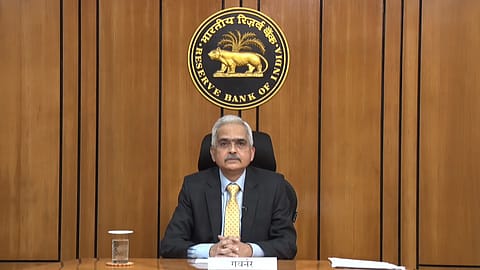Release property docs in 30 days or face ₹5,000 fine per day: RBI to banks, NBFCs
RBI notification comes amid "divergent practices" by some regulated entities in releasing such movable or immovable property documents

The Reserve Bank of India (RBI) today directed banks and other regulated entities to release all the movable or immovable property documents within a period of 30 days after receiving full repayment and closure of loan account. In the case of delay in releasing such documents, REs will compensate the borrower at the rate of ₹5,000 for each day of delay, says the RBI.
The central bank's notifications come in the wake of "divergent practices" by some regulated entities in releasing such movable or immovable property documents.
The RBI says it has led to customer grievances and disputes, which is why the central bank has come up with new guidelines with regard to property documents on repayment or settlement of personal loans.
The central bank has received complaints regarding banks and other entities from homeowners who want to transfer home loans. They accuse such REs of delaying the process of transfer of loans. This mostly happens in the case of customers who get offered cheaper home loans by some other entities, and they want to shift the loan to it.
"The REs shall release all the original movable or immovable property documents and remove charges registered with any registry within a period of 30 days after full repayment or settlement of the loan account," the RBI says in a notification issued today.
Deepak Shenoy, CEO, Capital Mind, has appreciated the RBI’s decision, saying: "This will help increase transmission of interest rates to lower levels if for some strange reason any bank refuses to cut your loan rate but some other bank has a lower rate for a new customer. Reduces friction. For delays, the penalty on the bank goes to the homeowner."
The borrower will be given the option of collecting the original movable or immovable property documents either from the banking outlet or branch where the loan account was serviced or any other office of the RE where the documents are available.
Recommended Stories
The timeline and place of return of original documents will be mentioned in the loan sanction letters.
In case of the demise of the sole borrower or joint borrowers, banks and other regulated entities will have a well-laid-out procedure for the return of original property documents to the legal heirs. Such procedure will be displayed on the website of the REs along with other similar policies and procedures for customer information, says the central bank.
In case of any delay in the release of movable or immovable property documents or failure in filing charge satisfaction form beyond 30 days after full repayment, the regulated entities will "communicate to the borrower reasons for such delay".
Also, in case of loss or damage to original property documents, either in part or in full, they will assist the borrower in obtaining duplicate or certified copies and bear the associated costs, in addition to paying the financial compensation. However, in such cases, says the RBI, an additional time of 30 days will be available to the REs to complete this procedure, and the delayed period penalty will be calculated thereafter (i.e., after a total period of 60 days).
(INR CR)
The RBI says the compensation provided under these directions will be "without prejudice to the rights of a borrower to get any other compensation as per any applicable law".